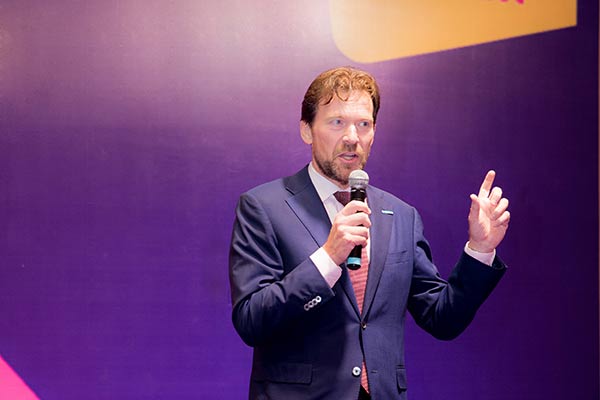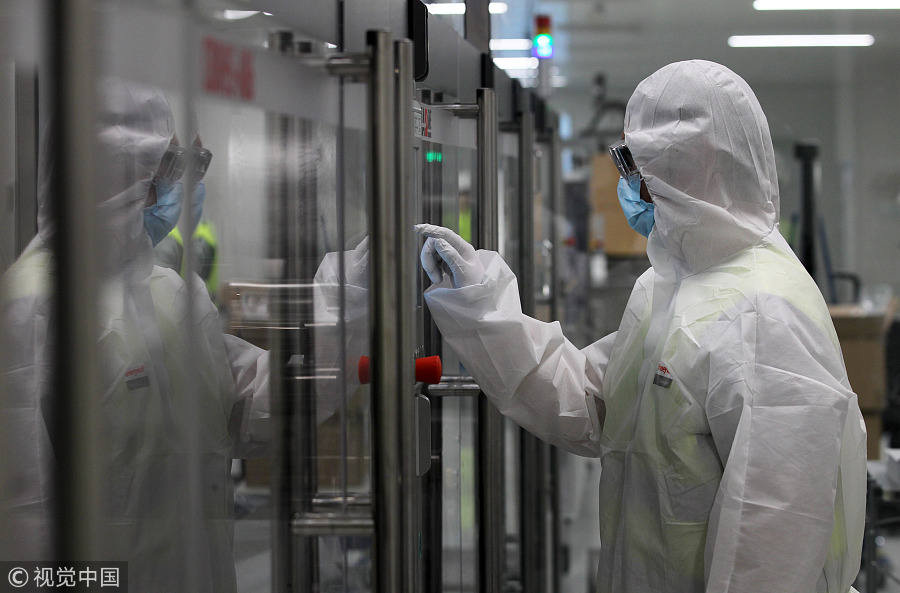On mission to transform healthcare
By Zhong Nan | China Daily | Updated: 2018-01-29 09:56

Rogier Janssens shapes Merck's patient-centric strategy in China
Since getting appointed as managing director of Merck Biopharma China in August 2017, Rogier Janssens has crisscrossed Chinese cities on weekdays as well as over the weekends, to learn more about the local culture and healthcare systems.
That's because China is Merck's key market with increasing financial impact.
The history of Merck in China can be traced back 85 years when it first established a legal entity. Today, the German science and technology company is actively involved in China's ongoing healthcare reforms, consumption upgrading and the Healthy China 2030 initiative.
Janssens, a Dutch citizen, joined the German company in 2013. He said the company will accelerate the introduction of innovative new drugs from its global pipeline to the China market.
Janssens is an industry veteran with 25 years of experience in pharmaceutical sales and marketing. Before coming to China, he worked in countries including Belgium, Switzerland, the United States, Denmark and Russia.
"The government's announcement in October to speed up the country's drug-approval process is fairly encouraging and we welcome this policy change as it will benefit patients in China, providing them with faster access to high-quality innovative medicines," Janssens said.
Aside from improved registration, he said a key next step would be for the industry to jointly look at the reimbursement system for innovative therapies coming to the market, as effective pricing and reimbursement system will facilitate access to innovative medicines and stimulate continuous innovation.
Established in Darmstadt, Germany, in 1668, Merck operates in 66 countries and regions with more than 50,000 employees today. They work together to further develop technologies in three major areas: healthcare, life science and performance materials.
With sales from China accounting for around 10 percent of the total and still growing rapidly, China represents one of the strongest growth markets across all its core businesses.
This big share of sales contribution also underlines the country's strategic importance, whether it is the liquid crystal materials in the display segment, or fast-growing demand for life science solutions in the biopharma sector.
The healthcare business was the biggest contributor to Merck's revenue in China in 2017. Merck Healthcare currently sells and manufactures 16 medicines in China covering seven major therapeutic areas, including oral anti-diabetes, oncology, cardiovascular disorders, infertility and thyroid diseases.
Zhang Yuxin, a professor at the school of public health at the China Medical University in Shenyang, Liaoning province, said as China's elderly people, who form a substantial part of the population, grow older, demand for drugs to battle various chronic diseases will surge in the coming decades.
Merck has been working with the government to cope with this huge challenge in chronic diseases. It is the first multinational to make a 170 million euro-investment in the production of pharmaceuticals to address the essential needs for the treatment of highly prevalent chronic diseases in China, such as type 2 diabetes, cardiovascular and thyroid diseases.
Further investments will be made to meet an expected increase in local demand. Once this plant starts to run to full capacity, the company will produce 10 billion tablets annually in China.
"Merck's products for chronic diseases have a competitive edge in China. The demand for these products will grow fast, pushed by an aging population, urbanization, changing diets and lifestyles in China, besides an increased access to ways of health management and awareness of healthcare," said Janssens.
Talking of lifestyles, the 53-year-old executive goes to the gym every day in Beijing and loves many outdoor activities such as hiking and cycling.
He said Merck will expand its diabetes portfolio as an aging population and lifestyle changes mean that not only diabetes but also pre-diabetes patients and diabetic complications are more prevalent. Merck's product portfolio can help treat and improve the lives of diabetes patients.
In addition to building on its expertise of chronic diseases and mature brands, including products in oncology and fertility, Merck has been keen to explore other specialty areas to help patients in need in China.
"We are focusing on our double mission, to grow existing product portfolio and deliver on our pipeline (medicines of) immuno-oncology and immunology," said Janssens. "For instance, immuno-oncology is a very attractive but also a competitive field. It focuses on harnessing the patient's own immune system to generate an effective immune response against cancer."
Digitalization, a core part of Merck's China strategy, will also play a key role in driving the company's transformation, according to Janssens.

























